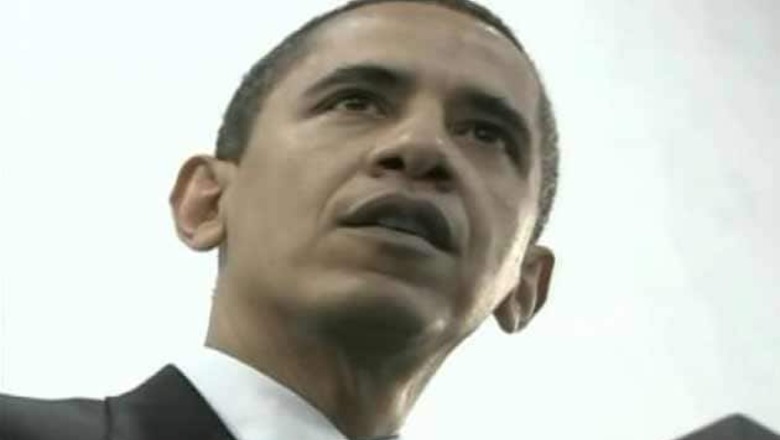
views
Washington: Ahead of his visit, President Barack Obama today described India as a "cornerstone" of US engagement in Asia, but held out no assurances on key issues - support for India's permanent membership of the UN Security Council and ending curbs on export of dual-use technology.
Outlining the objectives of his three-day maiden trip beginning Saturday, Obama said that building "a true strategic partnership" with India had been one of his "highest foreign policy priorities" since he assumed office in January last year.
The visit would give him an opportunity to work with Prime Minister Manmohan Singh to bring Indo-US cooperation on a broad range of issues "to a new level", he told PTI. The Indo-US partnership "is based on both our shared values and our shared interests, and for these reasons, I welcome and support India's rise as a global power", the President said.
India's rise "is in the best interests of both the countries (India and the US), of the region and the world", he said.
The President answered a wide range of questions covering contentious issues like US curbs on export of dual-use technology items, outsourcing, UNSC membership and Pakistan's failure to take action against perpetrators of 26/11 attacks.
Asked about the possibility of his announcing lifting of curbs on export of dual-use technology items and more concrete support for India's permanent membership of UNSC, Obama described the two issues as "very difficult and complicated".
"Our teams continue to work hard to reach an agreement that strengthens the international non-proliferation system while treating India in a manner that is consistent with our strategic partnership," he said in a reference to export restrictions that cover items which have both peaceful and military usage.
Without committing himself to a firmer support for India's bid for permanent seat in UNSC, Obama said, "I do also expect to discuss India's role as an actor on the global stage during my visit."
When told that there did not seem to be any "big ticket items" on the agenda, Obama responded, "I do not want to pre-empt the announcements that the Prime Minister and I will make while I am in India.
"I think you can expect a series of announcements on how we are going to deepen and broaden our cooperation on a range of things that will have a direct and very positive impact on millions of people both in India and the United States. "There will be big items on the agenda, and - just as importantly - I believe that we will build an even stronger foundation for the US-India partnership going forward."
The President went on to emphasise that Indo-US relationship "now goes well beyond any one particular issue". He said, "if you look at the breadth of everything we are working on now - from economic engagement to counter terrorism and security cooperation, from clean energy to development .. it goes well beyond the type of cooperation that we pursued just a few years ago."
All this indicated "the enormously positive trajectory of US-India relations", Obama said.
Outlining his vision of the relationship between the two countries, the President said, "my vision is a US-India partnership in which we work together to shape a more secure, stable, and just world.
"My visit gives me an opportunity to experience first hand your fascinating country, discuss issues of mutual concern with my friend Prime Minister Singh, and work with him to bring our cooperation on a broad range of issues to a new level.
"It is also important that I am visiting India as the first stop on a major trip to Asia, as I see India as a cornerstone of America's engagement in Asia, just as it is fundamental to our engagement in multilateral forums like the G-20.
"To me, the US and India share an indispensable partnership, one that has benefits for both our countries and the world."
Obama was asked about reports that the US companies were unhappy with some of the provisions of the Nuclear Liability Act passed recently by Indian Parliament to enable the country to engage in nuclear commerce, and whether he would press New Delhi to review it.
He replied, "I have a deep respect for India's democratic process and I also continue to encourage the Indian government to provide domestic and international suppliers the opportunity to help India meet its ambitious nuclear power generation needs.
"I believe that Indian officials are aware of our concerns over the law that was recently passed by the Indian Parliament. These concerns are shared by many others, including some Indian officials and representatives of Indian industry.
"The important thing is that our governments are working together to discuss these concerns and resolve them. That is a demonstration of the strength of our partnership ... how discussing our concerns brings us closer, instead of driving us apart."




















Comments
0 comment